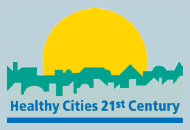Limited functional health literacy predicts poor diet, smoking and a lack of physical activity, independent of risk factors including age, education, gender, ethnicity and income. Such activities increase risk of morbidity and premature death in older adults independent of age, socioeconomic position, cognitive ability and pre-existing illness. People with long-term conditions including diabetes, depression, stroke, heart, kidney and musculoskeletal disease are also more likely to have limited health literacy.
Nutbeam (2000) classifies health literacy into three levels:
Functional health literacy: the basic skills of reading, writing and numeracy necessary to function effectively in a health context.
Interactive health literacy: refers to more advanced literacy skills along with social skills, can be used to actively participate in everyday situations, extract information and derive meaning from different forms of communication, and apply this to changing circumstance.
Critical health literacy: is the ability to critically analyse information and use this to exert greater control over life events and situations.
Policymakers, public health agencies, schools, employers, health professionals and community groups, among others, all play a role in addressing health literacy to improve health outcomes in the local community.


